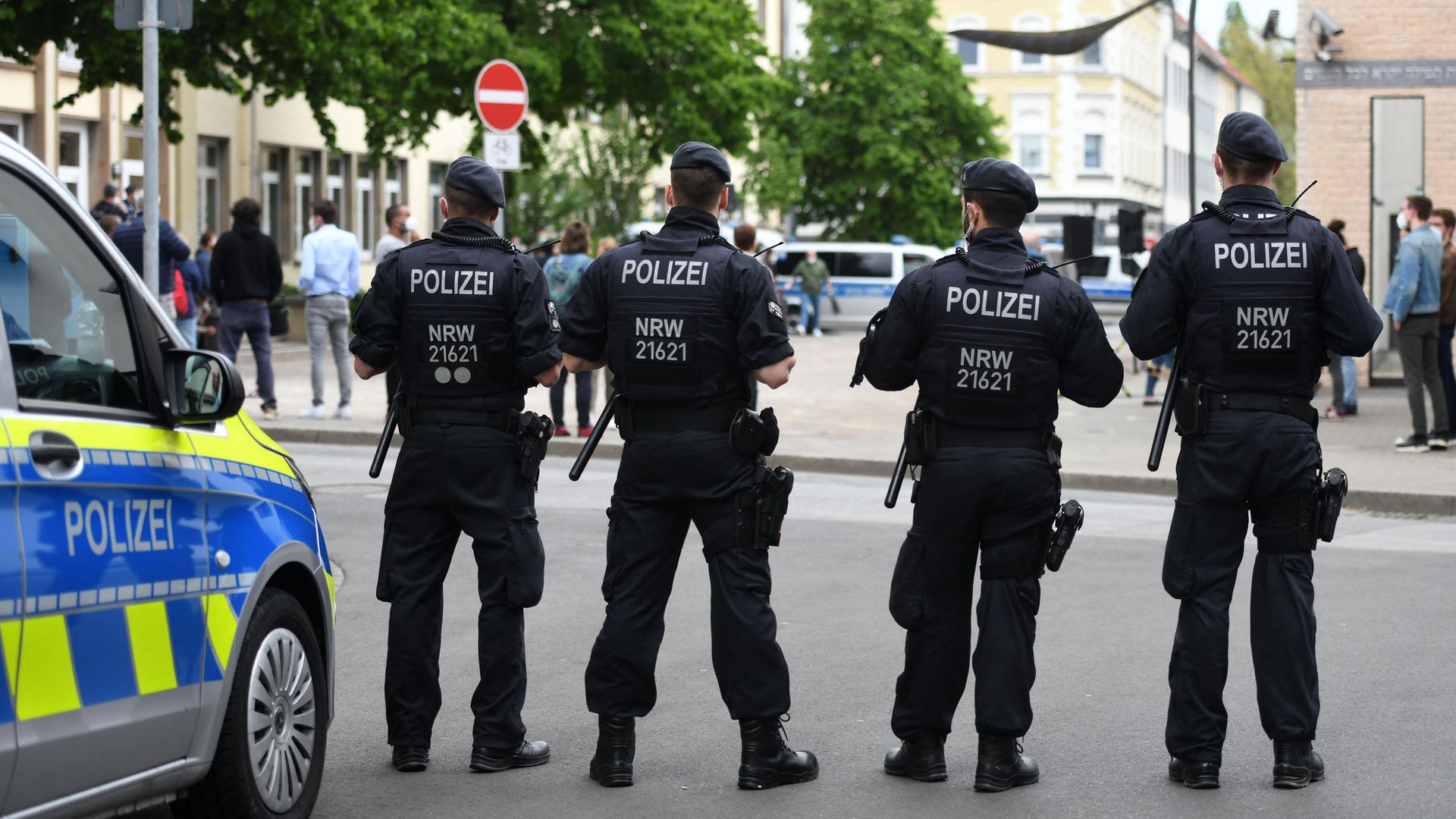
Protests, polemic and polls show how Islamists and the far right are targeting Jews and attempting to rewrite the painful past
“Our parents kept the suitcases packed, ready to leave any moment,” a friend wrote after I asked how she was coping with the anti-Semitic protests in Berlin. “Our generation of German Jews had long since stowed the suitcases underneath the bed. Now we’ve placed them within eyeshot again.”
This most recent outbreak of anti-Semitism in Germany – 4,000km away from Hamas’ bombs on Israel – is unbearable not only for those it is aimed at. Stones thrown at synagogues, Israeli flags burnt, mobs in a dozen towns yelling “Scheißjuden” and “Kindermörder Israel” (‘child killer Israel’), most people followed the news with a mix of disgust and disbelief. But if we are honest, this news didn’t come as a surprise.
Germany has long been facing a vociferous Islamist version of anti-Semitism, the so-called ‘imported’ variety: there have been several attacks and only a few years ago the State Commissioner against Anti-Semitism advised Jews not to wear the kippah no matter where they were in Germany.
The latest, appalling protests only differ in number from the annual Al-Quds rally in Berlin (named after Ayatollah Khomeini’s call to ‘liberate’ Jerusalem, by way of annihilating Israel): a gathering of anti-Semites of all shades and sizes, known for cries such as “Juden ins Gas” (‘gas Jews’). Berlin’s current Interior Senator calls it “one of the most vile anti-Semitic events” – which has been allowed to proceed for years.
Germany’s other, home-grown, anti-Semitism is rooted on both sides of the political spectrum. It is more guarded, encoded even. Since the end of the war, openly anti-Semitic views are risqué, because they aren’t socially acceptable any more. Over time, however, ciphers have evolved: “Israel-Kritik”, for instance, regularly comes in the disguise of criticising Israeli government policies but is usually directed at the whole country. (Funnily enough we hardly ever speak of “US-Kritik” or “Russland-Kritik” in German.)
The far-right, AfD, neo-nazis, and their supporters – if not writing hate-mail to Jewish institutions, signing with their full name – prefer the myth of a German “cult of guilt” which not only trivialises the Holocaust, it implicitly accuses Jews (yet again) of allegedly trying to benefit from their status as victims.
Among the general German population you will also find disturbing views. In a poll on behalf of the World Jewish Congress among so-called elites (university degree, annual income greater than or equal to 100,000 euros), 28% said that Jews had too much economic power, 26% agreed that they had too much power in world politics. And 48% believed Jews to be more loyal to Israel than to Germany. The poll was published two months before Yom Kippur in 2019, when a right wing extremist failed in his attack on the synagogue in Halle, killing a pedestrian and a customer in a kebab take-away instead.
The big and unanswered question is: How do you convey a sense of responsibility for last century’s history to children born this century (a 15-year-old girl recently told me: “But Stalin killed more people than Hitler!”) and to adults born outside Germany? It is difficult enough as it is, but even more difficult, if there are no great-grandparents linked to Nazi Germany, but instead Islamist prejudices against Jews and Israel.
The political response to all this is overwhelmingly sincere (“intolerable”, “unbearable”, “unacceptable”), and underwhelmingly fruitless. A government spokesman said last week: “Our democracy will not put up with anti-Semitic rallies.” But in fact it does. Because legislators, courts and police aren’t preventing them yet. As long as this is the case, a disillusioned op-ed in the Jüdische Allgemeine newspaper just stated, at least please spare us your trite “Never again!” slogans at Holocaust memorial days.
What do you think? Have your say on this and more by emailing letters@theneweuropean.co.uk
Warning: Illegal string offset 'link_id' in /mnt/storage/stage/www/wp-includes/bookmark.php on line 357
Notice: Trying to get property 'link_id' of non-object in /mnt/storage/stage/www/wp-includes/bookmark.php on line 37






